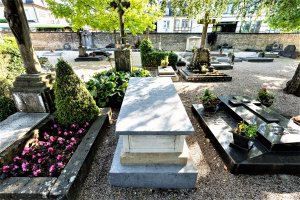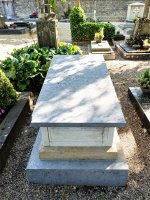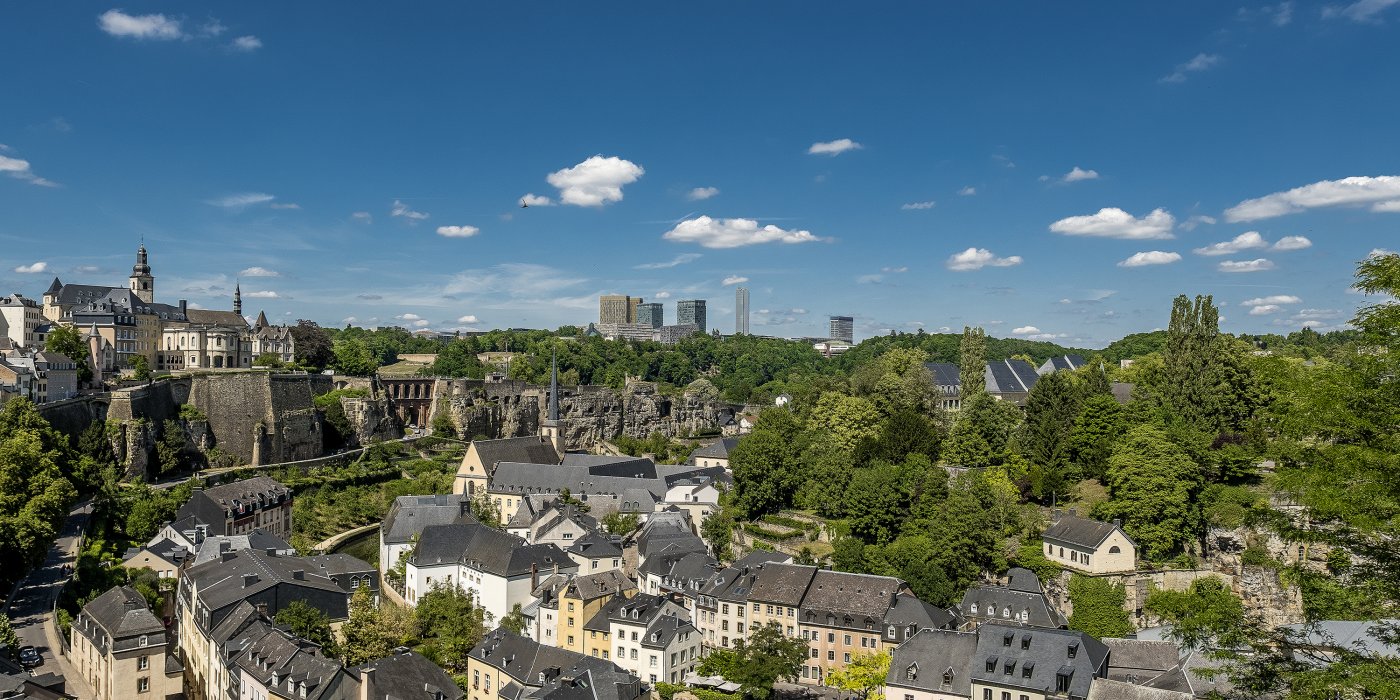Description
François Scheffer was born on 1 July 1766 at 16, rue des Capucins. He was one of Luxembourg City's most renowned mayors.
Scheffer came from a family of bakers, roasters and haberdashers, and from 1777 to 1784 attended the Collège Royal, the name officially given to the Athenaeum secondary school after the suppression of the Jesuits. In 1788, Scheffer moved to Brussels to study law. After returning to Luxembourg in 1791, he embarked on what would become a stellar career under the French Directory, Consulate and Empire. After the country gained its independence, he continued to hold important offices. In 1791, Scheffer married Anne-Barbe Marguerite Seyler (1777–1856) and took over his father-in-law's grocery store on Grand Rue. In 1794, as a young trader, Scheffer was inducted into the Treize-Maîtres de la bourgeoisie (Thirteen Masters of the Bourgeoisie), and the Confrérie Saint-Sébastien
(Brotherhood of Staint Sebastian - arquebusiers). On 23 September 1794, the justiciar and aldermen of the City of Luxembourg appointed Scheffer lieutenant of a company of volunteer fighters from the bourgeoisie. The day the Luxembourg republican armies surrendered, 7 June 1795, marked a turning point in his life. François Scheffer was appointed municipal officer of the new municipality of Luxembourg, which replaced the General Council of the Commune. In the interim, he served as commissioner of the executive power, which was responsible for organising the constitutional authorities in the nine new French departments. On 16 July 1796, Scheffer was appointed registrar of mortgages for Luxembourg City and, until 1798, for the Diekirch district. From January to March 1797, Scheffer was a juror at the Criminal Court, and on 5 November 1797 became a member of the Central Administration of the Forêts department. On 10 April 1798 (21 Germinal Year XII), he was appointed Administrator of the Forêts department.

Around 1797–1798, Scheffer helped promote the Cercle Constitutionnel, whose purpose was to advise the Government on disseminating the principles of freedom and republicanism. Scheffer acquired the former Capuchin monastery and its grounds, which extend out to the Berlaimont bastion and Côte d'Eich, as a national asset. The former monastery was converted into a supply warehouse. In 1799, Scheffer became a member of the Board of the Municipal Hospices. He continued his career under Napoleon, becoming mayor of Luxembourg City.
However, because he opposed handing over the former City Hall to Prefect Lacoste, he was dismissed in 1802. The next year marked a new beginning for him: he was appointed judge in the Commercial Court, where he sat until 1817. On 4 November he became a member of the department's Electoral College, and seven weeks later, on 21 December, he was inducted into the Enfants de la Concorde Fortifiée Masonic lodge with his friend Jean-Baptiste Gellé. In 1818, he co-founded the Société Littéraire Masonic society. Along with Jean-Baptiste Gellé, he purchased the former Maison des Marchands in Rue de la Loge, which today continues to house the Grand Lodge of Luxembourg. In 1809, the prefect appointed Scheffer to the review board tasked with examining the list of 100 people most liable for tax. His appointment was renewed in 1812. In 1811, he joined the court as a juror.
He also joined the church council of the St Pierre parish church, which is now the Notre Dame Cathedral. His career was at its highest between 1815 and 1830. He was a member of the committee responsible for collecting donations for defenders of the homeland. In 1816, he was asked to write the draft regulations for the new municipal administrations, which laid the groundwork for their enactment in 1843 and marked the close of his career. During the food shortages of 1816 and 1817, Scheffer was a member of the Central Relief Committee. Through a decree issued by the King-Grand Duke on 20 October 1817, François Scheffer was appointed mayor and chairman of the first Conseil de Régence (regent's council) of the City of Luxembourg. In 1820, this appointment was extended for a further two years. In 1824, the King-Grand Duke appointed him chief alderman, a position he held until 1827. At that time, he was released to assume the position of district commissioner and member of the Provost's Commission instituted by the standing committee of the Société de Bienfaisance de Bruxelles. He supported the public education projects promoted by Jean-Baptiste Gelée and was a co-founder of the Cercle littéraire.
In 1827, Scheffer was appointed mayor for the fourth time. Despite the upheaval of the Belgian Revolution, he was appointed mayor again in 1831 and 1836. Whereas during his first stint as mayor he fought to preserve the former City Hall, this time around, he devoted himself to building the new City Hall on Place Guillaume II, resuming a project he had launched in 1819. Another contribution he made to the city was to install the first public gas lighting systems. In 1841, in his capacity of mayor, he welcomed King William II during the king's first visit to Luxembourg. That same year, Scheffer was appointed member of the États du Luxembourg assembly. After winning the same number of votes as the second elected representative in the municipal elections of 10 November 1843, he stepped down from public service in January 1844. François Scheffer died on 9 September 1844 with no living descendants.
The funeral procession was composed of children from schools and hospices, followed by flying banners, bands, and delegations from the organisations Scheffer belonged to. Next came the priests, the coffin with relatives walking behind it, the municipal council, the governor of the country, the government councillors, the major general of the fortress, civil servants, judges, high-ranking officers and an enormous crowd. The secretary of the municipal administration delivered a eulogy after the religious ceremony. In recognition of his achievements, Scheffer was awarded the Order of the Red Eagle of the Kingdom of Prussia. He was also awarded the rank of Knight of the Order of the Netherlands Lion by the King-Grand Duke, and in 1843, he was awarded the rank of Commander of the National Order of the Oak Crown. King-Grand Duke William II also bestowed on him the title of honorary mayor. In 1890, the municipal council decided to register François Scheffer in the City's Livre d'Or and on the list of benefactors. Allée François Scheffer, in Limpertsberg, pays tribute to the city's former mayor. François Scheffer's wife, who died on 10 March 1856, was a city benefactor. Through an 1849 will and 1856 codicil, she left a large portion of her fortune to charity. She created several scholarships for the poor, both for the Athénée de Luxembourg and higher education at universities abroad. A special scholarship was founded for girls who wanted to become midwives.



















